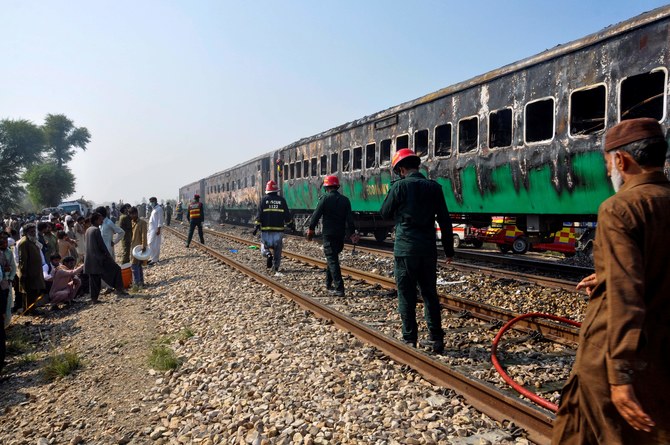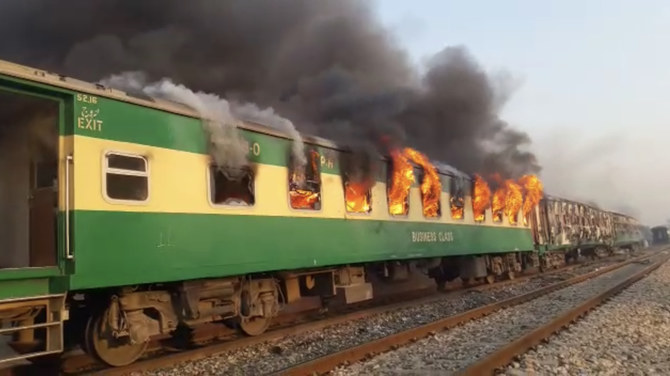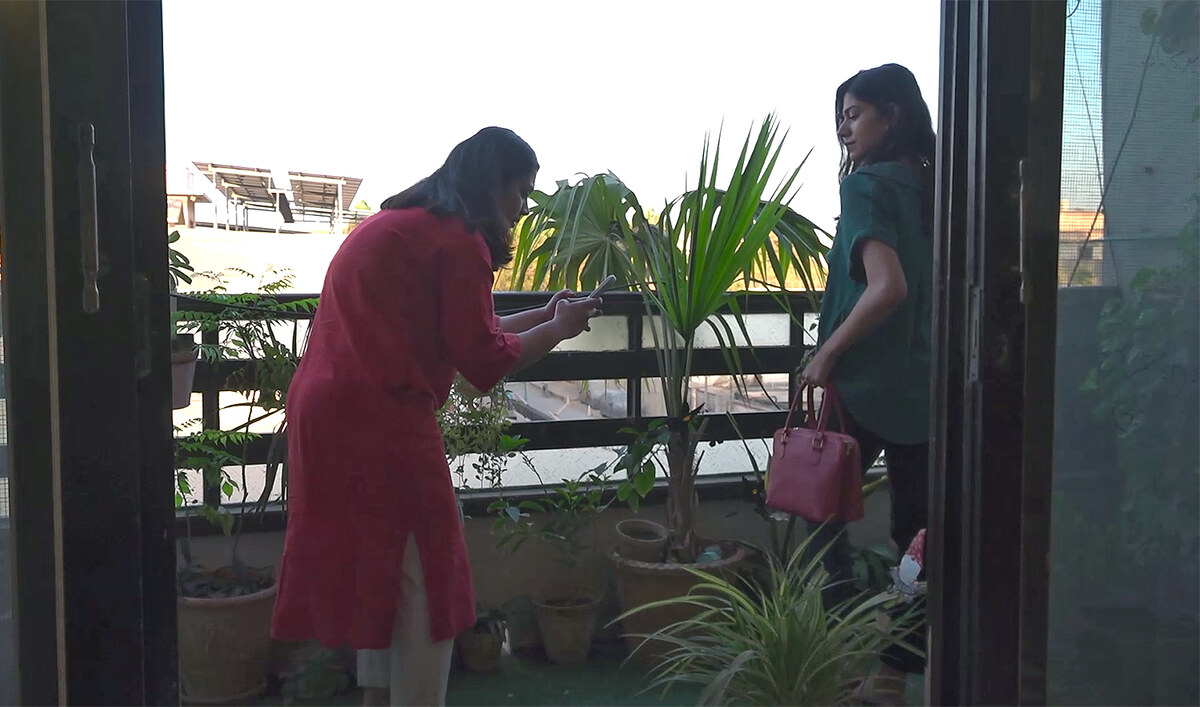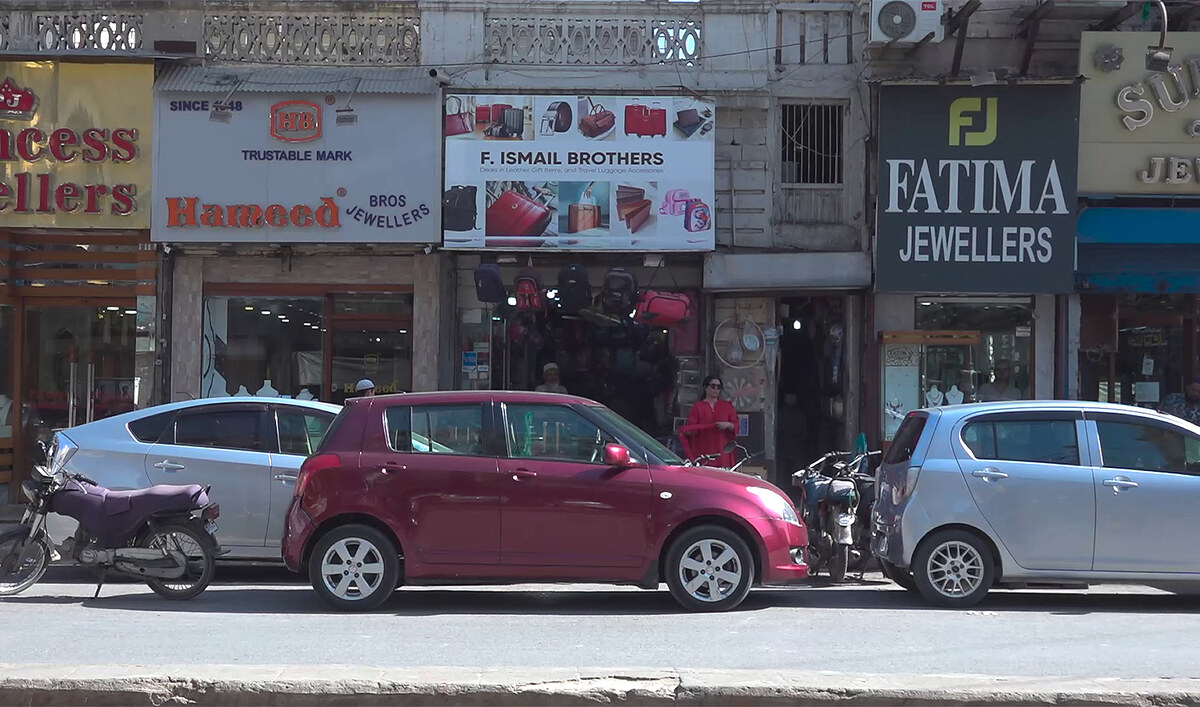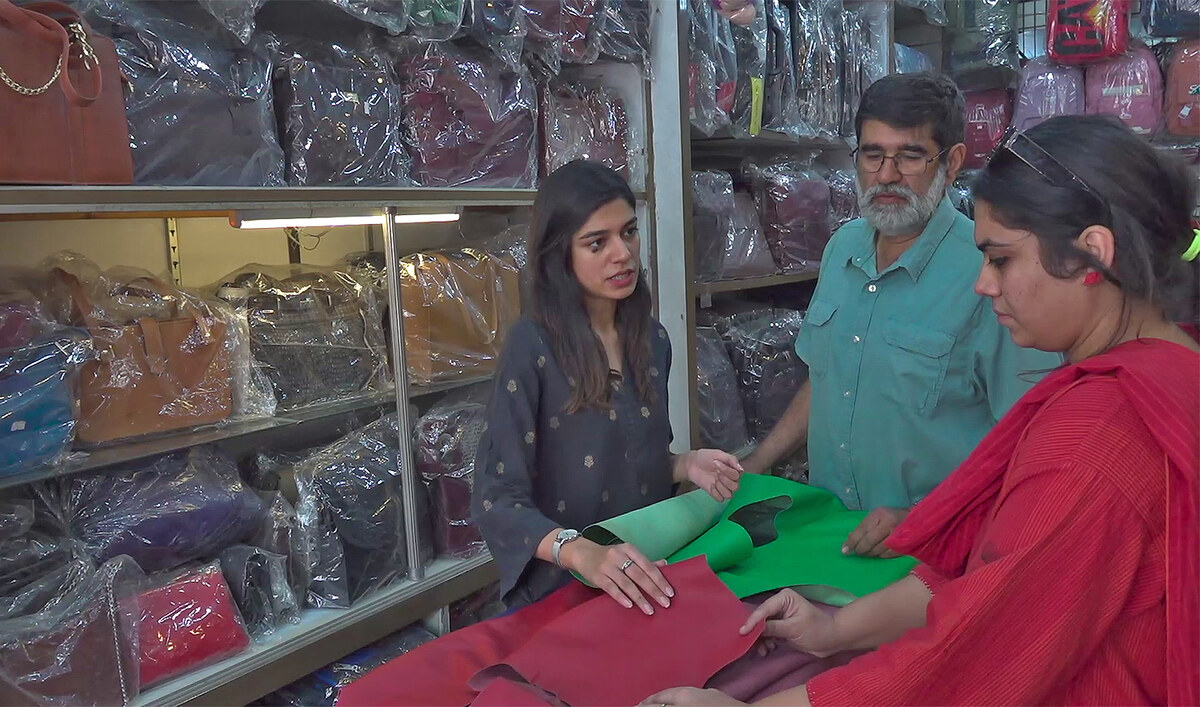MULTAN, Pakistan: A massive fire caused by a cooking gas stove erupted Thursday on a train traveling in Pakistan’s eastern Punjab province, killing at least 74 passengers, officials said.
Flames roared through the train cars as the train approached the town of Liaquatpur in Punjab, they said, the latest tragedy to hit Pakistan’s dilapidated, poorly maintained and mismanaged rail system.
Survivors recounted horrific scenes of fellow passengers screaming as they jumped through the windows and off the train, flames billowing from the carriages.
“We could hear people crying and screaming for help,” said Chaudhry Shujaat who had boarded the train just a few hours earlier with his wife and two children. “I thought we would die. The next car was on fire. We felt so helpless.”
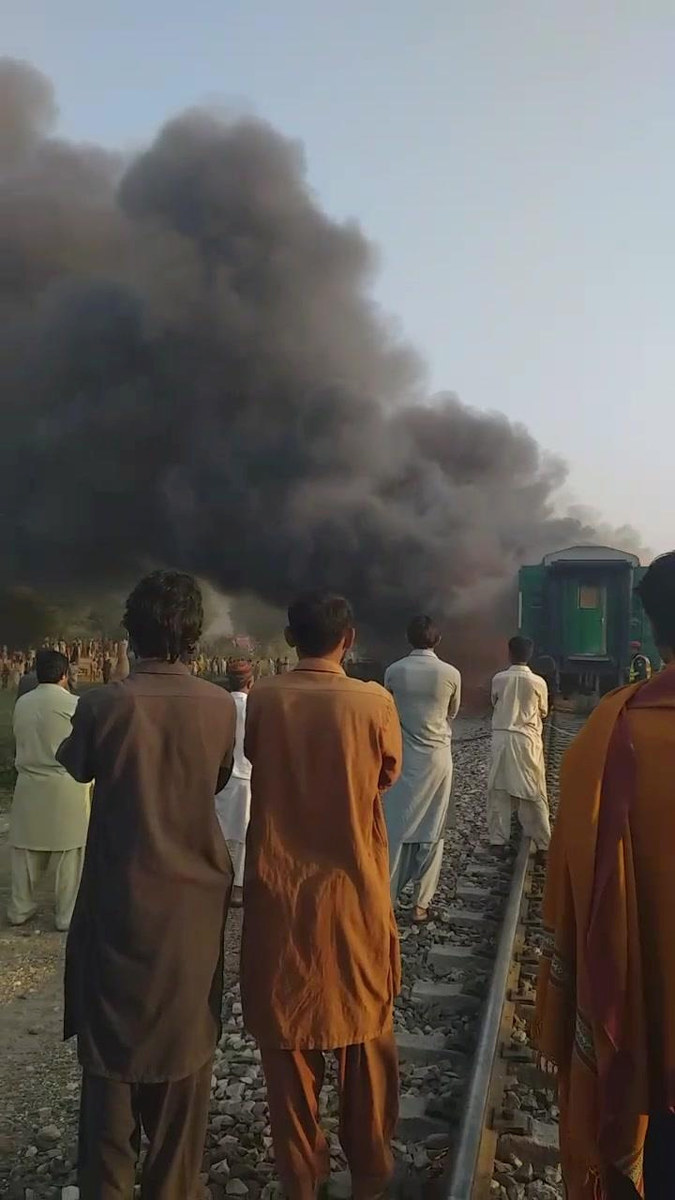
Men look at a burning train after a gas canister passengers were using to cook breakfast exploded, near the town of Rahim Yar Khan in the south of Punjab province, Pakistan October 31, 2019, in this still image taken from video obtained from social media. (REUTERS)
Deputy Commissioner Jamil Ahmed said the fire broke out when a gas stove exploded as breakfast was being prepared on board. He added that the death toll had risen steadily since the early morning.
Kaleem Ullah, an official with the district emergency services, says of the 43 people injured, 11 were still in critical condition.
Several of the injured had jumped off the train — many to their deaths — after the fire broke out and before it eventually screeched to a halt, said Ahmed.

Firefighters work to cool down the burnt-out train carriages after a passenger train caught on fire near Rahim Yar Khan in Punjab province on October 31, 2019. (AFP)
Survivors said it took the train nearly 20 minutes to come to a halt after the fire broke out and passengers began screaming for help. Some pulled at emergency cords that weave through the train to notify the conductor.
Ghulam Abbas, a passenger who had gotten on the train in the town of Nawabshah in neighboring Sindh province with his wife and two children, recounted watching panicked passengers jumping off.
“We learned afterward that most of them had died,” he said.
His wife, Sulai Khan Bibi, said she was horrified about what would happen to their two small children. “We were so close to death, but Allah saved us,” she said, clutching the children.
In Pakistan, poor passengers often bring their own small gas stoves on the trains to cook their meals, despite rules to the contrary, according to Railways Minister Sheikh Rashid Ahmed. Safety regulations are often ignored in the overcrowded trains.
Ahmed said in Thursday’s tragedy, it was cooking oil carried on the train by a group of Islamic missionaries known as Tableeqi-e-Jamaat that had caught fire after the initial cooking stove exploded, contributing to the extent of the blaze and its speedy progress.
Railway official Shabir Ahmed said bodies of passengers were scattered over a 2 kilometer (mile) -wide area around the site.
People from nearby villages rushed to the train, carrying buckets of water and shovels to help douse the flames. “But it was impossible,” said Ahmed.
Through the morning hours, rescue workers and inspectors sifted through the charred wreckage, looking for survivors and aiding the injured. Local Pakistani TV footage from the scene showed a huge blaze raging as firefighters struggled to get it under control.

Rescue workers gather beside the burnt-out train carriages after the passenger train caught on fire near Rahim Yar Khan in Punjab province on October 31, 2019. At least 65 people were killed and dozens wounded after a passenger train erupted in flames in central Pakistan on October 31, a provincial minister said. (AFP)
Officials said they were still trying to identify the victims and that the lists of fatalities and those injured were not ready yet. Another train was dispatched to bring the survivors to the city of Rawalpindi, they said.
Yasmin Rashid, a provincial minister in Punjab, told reporters that the medical staff was providing the best possible treatment for the injured at a hospital in Liaquatpur. Those critically injured were taken by ambulances to the city of Multan, the largest city nearest to the site of the accident.
The train was on its way from the southern port city of Karachi, the capital of southern Sindh province, to the garrison city of Rawalpindi when the blaze erupted, said Ahmed, the deputy commissioner.
Pakistan’s military said troops were also participating in the rescue operation. President Arif Alvi and Prime Minister Imran Khan issued statements expressing their sorrow over the tragedy.

Firefighters work to cool down the burnt-out train carriages after a passenger train caught on fire near Rahim Yar Khan in Punjab province on October 31, 2019. (AFP)
Khan took to Twitter to offer his condolences to the families of those killed and say he was praying for the speedy recovery of the injured. He also ordered an urgent investigation into the incident.
Train accidents in Pakistan are often the result of poor railway infrastructure and official negligence. Media reports on Thursday suggest that railways officials did not notice when passengers boarded the train, carrying individual gas stoves.
In July, a passenger train rammed into a pared freight train at the Walhar Railway Station in the district of Rahim Yar Khan, killing at least 20 people and injuring 74.
A month earlier, a passenger train traveling to the eastern city of Lahore from the port city of Karachi collided with a freight train in the southern city of Hyderabad, killing three people.


